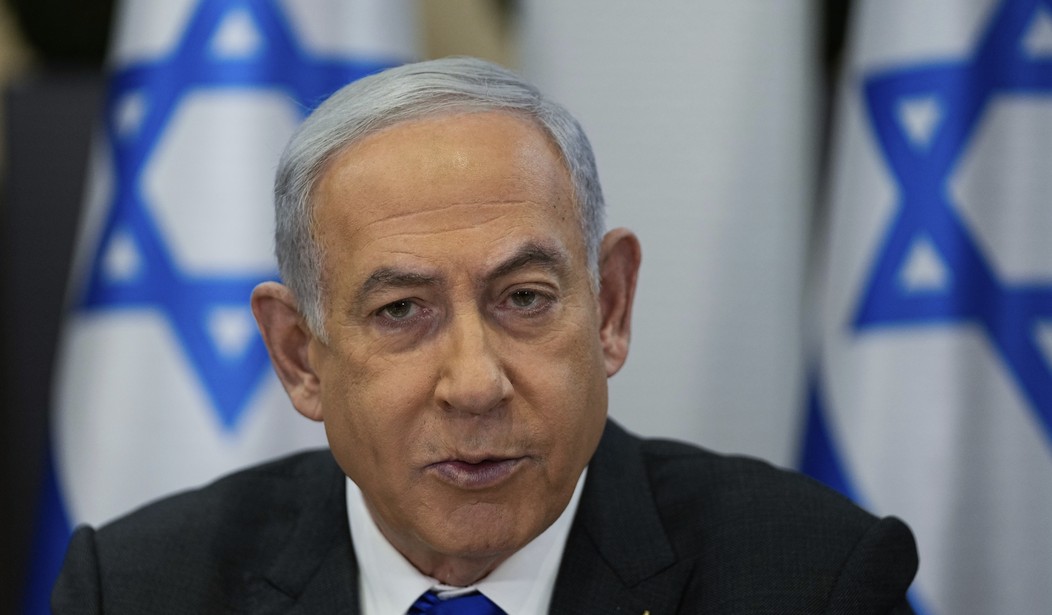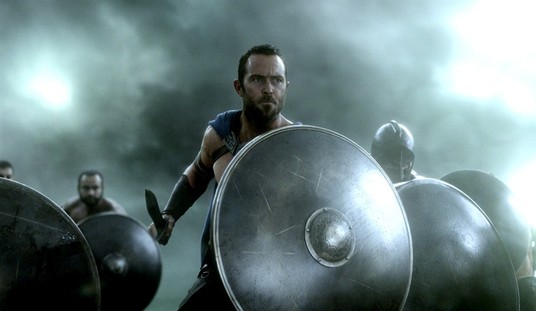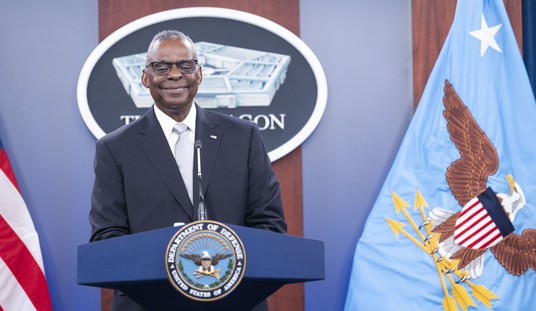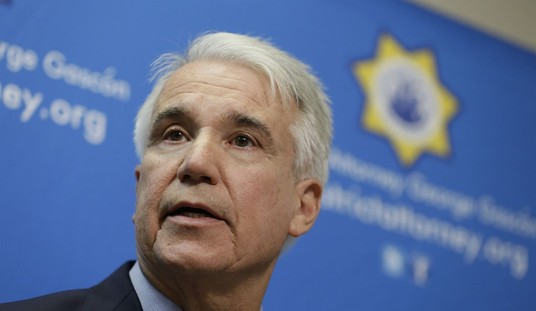Was national unity too good to last in Israel? The horrors of the October 7 Hamas massacres, rapes, pillaging, and kidnappings forced Israeli politicians to close ranks and create a unity government under Prime Minister Benjamin Netanyahu. However, that also forced Netanyahu to share authority with main opposition leader Benny Gantz and fellow Likud leader Yoav Gallant. Since the formation of the war cabinet, those three have had to work together on strategy, tactics, and wartime governance.
Ever since the formation of that triumvirate and the unity government, many wondered when it would finally come apart -- although most probably expected a split to come on a right/left fault line. Instead, the two Likud leaders have openly broken with each other over the issue of Gaza and the 'day after' question:
The press conference was Gallant’s first in months, and it was the sharpest criticism from a member of Israel’s war cabinet since the war began on October 7. It erupted after months of tension between the two and after reports emerged earlier this week that senior IDF officers believed that the lack of a governing alternative to Hamas had forced the IDF to return and fight in areas that had already been cleared out.
Gallant argued that “indecision is, in essence, a decision” that would lead to one of two bad results: Continued Hamas rule, or IDF control over Gaza's civilian population.
“I call on Prime Minister Benjamin Netanyahu to make a decision and declare that Israel will not establish civilian control over the Gaza Strip, that Israel will not establish military governance in the Gaza Strip, and that a governing alternative to Hamas in the Gaza Strip will be raised immediately,” Gallant said.
Gallant wants "non-Hamas Palestinian entities" put in place to govern Gaza immediately, especially in areas where Hamas got forced out. The lack of any civilian authority in those places allowed for a vacuum which Hamas filled, requiring more military action in northern and central Gaza, the need for which clearly surprised and dismayed some Israelis.
But that prompts the question: what "non-Hamas Palestinian entities" exist for such a role? The only choice would be the Fatah-run Palestinian Authority, and the rest of the ministers on the Right in the government won't agree to that at all. Netanyahu immediately blasted back at his fellow Likud minister in a short but pointed speech:
Responding to Gallant, Netanyahu adamantly declared that neither Fatah, the Palestinian Authority President Mahmoud Abbas’s party, nor Hamas, would be responsible for Gaza after the war.
“After the terrible massacre on October 7, I ordered the destruction of Hamas,” Netanyahu stated in a video response to Gallant. “As long as Hamas remains intact, no other party will step in to manage civilian affairs in Gaza, certainly not the Palestinian Authority. 80 percent of the Palestinians in Judea and Samaria support the terrible massacre of October 7,” Netanyahu said, referring to the West Bank by its biblical names.
“I am not prepared to switch from Hamastan to Fatahstan,” he said, referencing the Fatah-dominated PA.
Clearly, this has percolated within the war cabinet and unity government for a while. Gallant told David Ignatius that he wants to pass along civil governance of Gaza to an international force of troops and administrators from nearby Sunni nations -- Egypt, Jordan, and Saudi Arabia, That would provide Muslim control of the territory by troops that have every reason to keep Hamas from reappearing and to stand up local leaders in their stead. But these countries have little reason to help Israel in the north while the IDF fights Hamas in the south, and all three want Israel to make concessions for a long pause that Netanyahu won't accept -- and neither would Gallant or Gantz, if they had to take full political responsibility for the survival of Hamas.
The Israelis can't do it on their own either. The Israelis could find local leaders in these places with some influence and stand them up as local civic authorities, but without destroying Hamas, it would be futile. For one thing, just getting appointed to such positions by the Israelis would instantly discredit them in Gaza. More importantly, Hamas terror operatives would assassinate them or co-opt them, the latter of which then would allow Hamas to control the territory all over again via proxies.
And while the PA is Joe Biden's favorite choice, the PA is getting co-opted to some degree already in the West Bank by the much-more-popular Hamas since the October 7 massacres. Netanyahu's not wrong about their nature, and a failure to destroy Hamas in the war will only enhance their prestige in the West Bank as well as Gaza. There would be zero chance of success in using Fatah to govern Gaza, especially as constituted now, and a good chance that the West Bank could end up under Hamas control through the "skin" of the PA, so to speak.
The only realistic strategy in Gaza would be a short-term occupation after the destruction of Hamas, followed by a transfer of authority to an international Sunni coalition that could develop practical leadership from within Gaza. That's why the Rafah operation should have been started months ago, before Hamas could start fighting again in areas the IDF already cleared. Militarily, it's still viable, but politically, Gallant's broadside seems to have closed the window.
If this had come from Gantz rather than Gallant, Netanyahu could have reverted back to the Likud coalition and taken full control again. This split, however, would doom Netanyahu to an election if Gallant forces the issue -- and that's what Netanyahu doesn't want. He may have no choice, however, since that seems to be exactly what the Biden administration is trying to force via Gallant. Back to Ignatius:
Gallant’s approach aligns with that of the Biden administration, which has been urging Netanyahu for months to start building Palestinian forces that can eventually take over security responsibility in Gaza. National security adviser Jake Sullivan explained the administration’s view in a meeting with reporters Monday. “Any military operation ... has got to be connected to a strategic endgame that answers the question: What comes next?” Sullivan said. “We want an outcome in which the page gets turned.”
Biden administration officials say Gallant has taken a larger role in U.S.-Israeli dialogue in recent months, as relations have soured between Netanyahu and President Biden. One U.S. official described Gallant as an “indispensable” problem-solver in the increasingly tense debate about how to end the war in Gaza.
Though the most visible part of the U.S.-Israel dispute has been over a possible Rafah invasion, the larger issue is how to finish military operations and stabilize Gaza. Administration officials argue that an all-out attack on Rafah now, without robust plans for humanitarian assistance for civilians, would cause more problems for Israel than it would solve. Netanyahu has countered that Israel can end the war quickly by destroying the four remaining Hamas battalions in the city.
Gallant didn’t discuss Rafah in an any detail. But he said he had been exploring with Biden administration officials how to conduct any operation there in a way that doesn’t worsen the humanitarian crisis.
Translation: The Biden team wants Netanyahu out of the way, and peeling Gallant away and generating a split in Likud is the best strategy for that outcome. It's a strategy that hobbles Israel and allows Hamas off the hook in the short run.
Ignatius is more optimistic:
The bottom line is that “any military action has to end in a political solution,” Gallant told me. What I took away from the conversation is that significant new debate is beginning in Israel — and with its partner, the United States — not just about ending the war in Gaza but creating stable Palestinian governance there after it’s over.
The only path to a political solution, however, is the destruction of Hamas. Without that, no native leadership will emerge that will deal with Israel realistically; Hamas will simply annihilate any 'moderates' that would emerge. And moderates won't emerge in any case until the extremist Hamas ideology results in its complete destruction and is entirely discredited. Until that happens, don't expect anything else from Gaza than what we have seen over the last 18 years since the Israeli occupation ended.








Join the conversation as a VIP Member